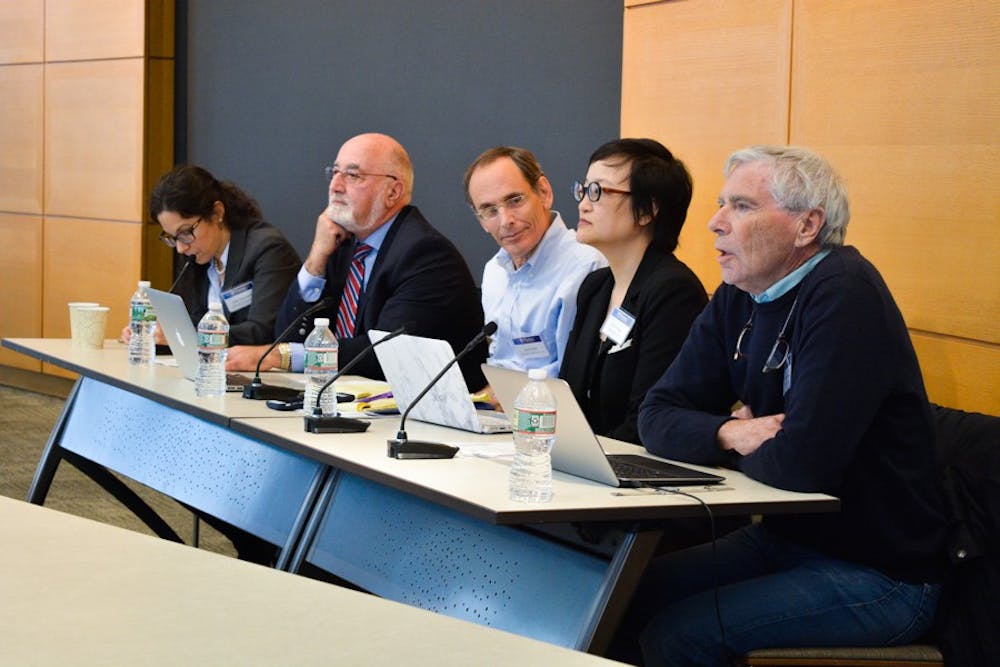This weekend, some of the world’s most eminent economists, ethicists, and philosophers gathered in Huntsman Hall to discuss and challenge their research and worldviews.
For the first time, Wharton hosted the third biennial Normative Ethics and Welfare Economics Conference, which brought together 26 academics from universities like Penn, Oxford, Harvard, Rutgers, and the University of Zurich.
Over the course of two days, participants presented original research on broad topics like happiness and social welfare as well as climate change. For each topic, two academics from different disciplines presented their work and a discussant fostered a larger discussion on the topic.
Benjamin Lockwood, a conference co-organizer and a Wharton professor, said the event emphasized an interdisciplinary approach to larger issues of policy.
“We’re kind of bringing together philosophers and economists and other people who are interested in this intersection between ethics and economics” Lockwood said.
Lockwood added that the organizers sought out scholars who were not only doing important work in their fields, but who also would be interested in engaging in a collaborative dialogue about their research.
The conference was co-sponsored by the Penn University Research Foundation, the University of Massachusetts at Amherst Department of Economics, the Wharton Department of Business Economics and Public Policy, and other organizations at Penn.
Joel Sobel, an economist at the University of California at San Diego who was attending the conference for the first time, said he found that the conference forced him out of his academic comfort zone in a beneficial way.
Related Links:
“Academic research tends to be quite specialized,” Sobel noted. “You forget how to talk to people who aren’t exactly like you and there might be a chance that the people who aren’t exactly like you are doing things that are useful and interesting to you and can help you move forward.”

Lockwood also emphasized the importance of being a sort of outsider in academic events.
“It’s useful to have conferences where you’re talking to people enough outside your own discipline that you almost feel like you have to translate what they’re saying or starting with different assumptions, which I think creates that feeling that you’re the odd one out,” Lockwood explained. “Viewing things from a slight remove is useful when thinking about whether your assumptions are the right ones.”
The conference also drew a wider audience from Penn. Felipe Mazin, a second-year PhD student in economics, attended the conference on Friday and Saturday. Mazin said he appreciated being forced to interpret the various topics within different frames of reference beyond economics.
Sobel also found the conference expansive.
“It is certainly useful to get an idea of what the other arguments are and I think that being exposed could help you do your own little piece of the job better,” he said.
The conference will take place once again in 2020 after what Lockwood saw as a successful weekend.
“I think it was really well-received, especially for having such disparate disciplines coming together, I think it was civil and warm and people got some useful conversations and came away wanting to do it again,” Lockwood said.










